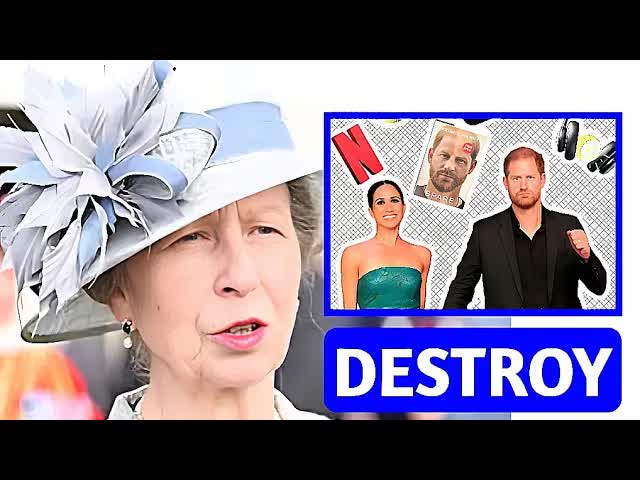In a significant shake-up within the British royal family, Princess Anne has officially replaced her brother, Prince Andrew, as Councillor of State.
This decision sends a clear signal about the monarchy’s commitment to maintaining its reputation amidst ongoing controversies.
With every title change and royal appointment making headlines, this latest development is more than just a family affair; it’s a reflection of evolving values and expectations in today’s society.
So, how did we arrive at this pivotal moment?
The royal family has faced mounting scrutiny over the years, especially regarding Prince Andrew’s controversial ties to convicted s offender Jeffrey Epstein.
His infamous BBC interview in 2019 only intensified public outrage, putting the family’s image in jeopardy.
It’s akin to having a teammate who consistently misses the goal; eventually, you have to make a change to keep the game on track.
Thus, in December 2022, the decision was made to remove Andrew from his duties, paving the way for Princess Anne to step in.
This transition is not merely a change in title; it represents a broader shift in the monarchy’s approach to public perception and accountability.
By appointing Anne, known for her hardworking nature and scandal-free history, the royal family signals a departure from outdated traditions that may have shielded less reputable behavior.
In a world that increasingly values integrity and service, Princess Anne’s ascension symbolizes a fresh start for the royal family.
Often overshadowed by flashier relatives, Princess Anne has long been the unsung hero of the royal household.
Her tireless dedication to her royal duties sets her apart.
Unlike some family members who thrive on media attention, Anne is all about getting the job done.
She embodies the notion that actions speak louder than words, consistently proving her commitment to her causes through hard work and reliability.
Did you know that Princess Anne is frequently recognized as the busiest royal?
Her schedule is packed with engagements, and she approaches each one with a seriousness that speaks volumes about her character.
It’s not merely about fulfilling obligations; it’s the passion and dedication she brings to her roles that truly earns her admiration.
When a reporter once asked if she ever wished for a normal life, her response was telling: “I don’t think many people would want my life.” This perspective highlights her understanding of her responsibilities, embracing both the perks and challenges of her royal position.
The symbolism behind Anne’s appointment as Councillor of State is profound.
It underscores the values of duty, reliability, and integrity that the monarchy aims to uphold.
Isn’t it fascinating how the least glamorous figure can often be the most dependable?
This narrative serves as a reminder that true value lies not in seeking the spotlight but rather in being present when it matters most.
Turning our attention to Prince Andrew, his story serves as a cautionary tale.
Once a respected naval officer and beloved royal, his association with Epstein marked the beginning of his downfall.
Andrew’s denials of allegations made against him, particularly those from Virginia Giuffre, only fueled public outrage.
As demands for accountability grew, Buckingham Palace had no choice but to act, leading to Andrew’s eventual removal from public duties.
The public’s perception of Prince Andrew has shifted dramatically.
In an era where transparency and accountability are paramount, the royal family faced immense pressure to distance itself from his controversial past.
Appointing Princess Anne as his replacement is a clear statement: the monarchy is evolving, and protecting individuals at all costs is no longer acceptable.
What does this mean for the future of the monarchy?
By elevating Anne, the royal family appears to be embracing a new ethos that prioritizes merit over privilege.
Being born into royalty no longer guarantees a role in public service; instead, qualities like integrity and dedication are now essential for royal responsibilities.
Princess Anne exemplifies these ideals, while Andrew’s story serves as a stark reminder of the consequences of neglecting one’s duties.
This shift also highlights the increasing prominence of women within the royal family.
Following in the footsteps of Queen Elizabeth II, figures like Princess Anne, the Duchess of Cambridge, and Princess Charlotte are emerging as strong leaders.
Could this signify the dawn of a new era where female royals assume even greater leadership roles?
Only time will tell, but Anne’s appointment certainly points in that direction.
Ultimately, the lessons we can draw from this royal reshuffle extend beyond the palace walls.
They resonate with universal truths about accountability and integrity.
Whether you’re a public figure or an everyday individual, the values represented here are crucial.
The monarchy’s willingness to adapt and embrace change is a powerful reminder that even long-standing institutions can evolve.
As we look to the future, the royal family’s image is set to undergo significant transformation.
Princess Anne’s appointment marks a step toward refreshing the monarchy for a modern audience, reinforcing the importance of duty and service.
The removal of Prince Andrew serves as a poignant lesson about the ramifications of poor choices, regardless of one’s status.
With Princess Anne at the helm, the royal family is poised to navigate the complexities of contemporary society while staying true to its core values.










